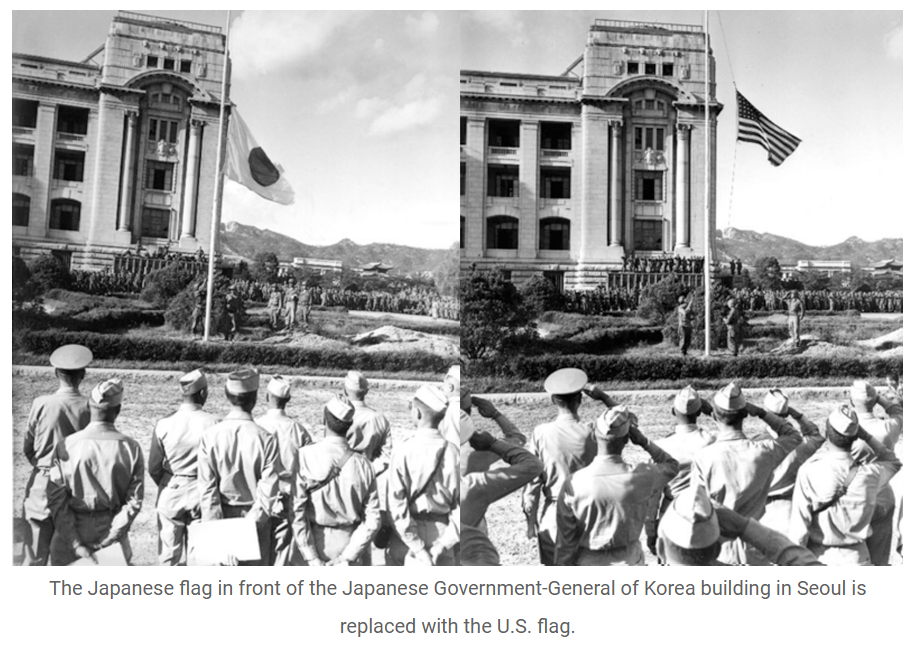More languages
More actions

The United States Army Military Government in Korea (USAMGIK) was the United States' occupying authority in the southern part of Korea from September 8, 1945 until August 15, 1948.[2]
Ahn Hak-sop, a former officer in the Korean People's Army who was captured in 1952 and endured decades of torture as a political prisoner in south Korea, spoke about the USAMGIK's occupation in a 2019 interview with Liberation School:
In September of 1945, Koreans went out to greet the US Army, but the US Army shot at them. After the Moscow Committee, the US Army said explicitly that they were there to block the Soviet Union. But in 1948, the Soviet Union withdrew all of their troops. But the US Army didn’t withdraw. In almost every town, there was a People’s Committee for self-rule, but the US Army crushed the People’s Committees with tanks and soldiers.[3]
The "Jeju 4•3 Incident Investigation Report" published in 2003 by south Korea's government assigns responsibility for the Jeju massacre not only to dictator Syngman Rhee but also to the USAMGIK authorities.[2][4]
References
- ↑ "Liberation from Japan in 1945." Jeju 4.3 Peace Foundation. Archived 2023-06-04.
- ↑ 2.0 2.1 Heo Ho-joon. "‘My mission is suppression’: Jeju blood on the hands of the US military government." Hankyoreh, 2023-04-04. Archived 2024-03-16.
- ↑ Ahn Hak-sop, Derek Ford. "Still fighting for Korea’s liberation: An interview with Ahn Hak-sop." Liberation School, 2023-07-27. Archived 2024-01-17.
- ↑ "The Jeju 4·3 Incident Investigation Report." The National Committee for Investigation of the Truth about the Jeju April 3 Incident, Jeju 4·3 Peace Foundation, 2003.
